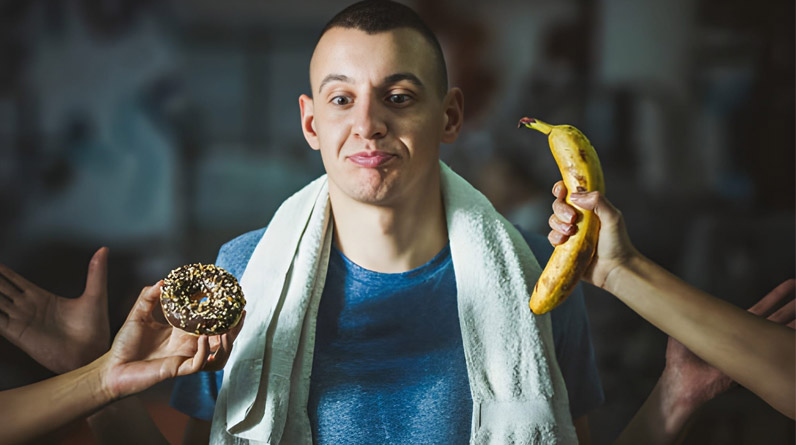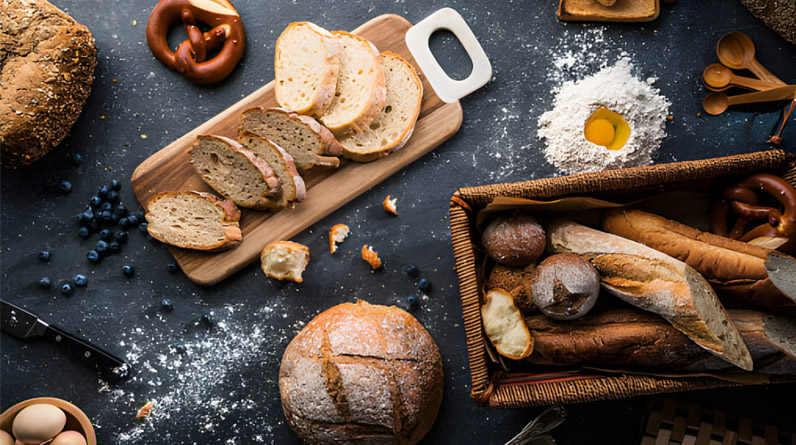As someone who spends my days elbow-deep in flour and surrounded by the aroma of fresh-baked bread, I’ve learned that the relationship between baking and fitness is more connected than most people realize. After years of fueling my own morning gym sessions and consulting with athlete clients at my bakery, I’ve discovered that understanding workout nutrition through a baker’s lens offers unique insights that mainstream fitness advice often misses.
The secret? It’s all about the quality of your carbohydrates, the timing of your intake, and knowing which baked goods can actually enhance your performance rather than weigh you down.
Why Timing Matters: The Science Behind Workout Nutrition
According to the International Society of Sports Nutrition, nutrient timing can significantly impact your body’s ability to build muscle and recover from exercise. Research published in the Journal of the International Society of Sports Nutrition indicates that consuming the right nutrients at strategic times can improve body composition and exercise performance by up to twenty percent.
From a baker’s perspective, this makes perfect sense. Just as bread needs the right environment and timing to rise properly, your body needs fuel at specific intervals to perform optimally. Miss that window, and you’re left with a dense, heavy result instead of something light and powerful.
Pre-Workout Nutrition: Fueling Your Engine
Think of pre-workout eating like preparing your starter dough. You need the right ingredients in the right proportions to get the fermentation process going. Your body operates similarly, requiring easily digestible carbohydrates to provide quick energy without causing digestive distress mid-workout.
The Academy of Nutrition and Dietetics recommends consuming a meal containing carbohydrates and moderate protein three to four hours before exercise, or a lighter snack thirty to sixty minutes prior. This timing allows your body to digest the food and convert it into usable energy.
Best Baked Options Before Exercise
Whole Grain English Muffins: These are my go-to recommendation for morning exercisers. A single whole grain English muffin provides approximately twenty-six grams of complex carbohydrates that release energy steadily. Top it with a thin layer of almond butter for sustained energy, and you’ve created the perfect pre-workout combination.
Homemade Oatmeal Cookies: Before you dismiss cookies as workout food, hear me out. When made with rolled oats, minimal sugar, and heart-healthy ingredients like walnuts and dried fruit, these become portable energy bombs. I bake mine with mashed banana instead of excess sugar, creating a treat that provides quick energy without the crash.
Sourdough Toast: The fermentation process in sourdough makes it easier to digest than regular bread, and studies from the University of Guelph show it creates a lower glycemic response. This means steadier energy levels during your workout. A slice topped with honey gives you both quick and sustained fuel.
Timing Your Pre-Workout Snack
Here’s where my baking experience becomes invaluable. Just as you wouldn’t pull bread from the oven too early or too late, timing your pre-workout meal matters tremendously. Eating too close to exercise can cause cramping, while eating too early leaves you running on empty.
For baked goods specifically, I recommend consuming them forty-five to sixty minutes before moderate exercise. This gives your digestive system enough time to break down the carbohydrates without making you feel sluggish. For lighter items like rice cakes or small muffins, thirty minutes is sufficient.
Post-Workout Nutrition: Recovery and Repair
If pre-workout eating is about preparation, post-workout nutrition is about restoration. After exercise, your muscles are like sponges ready to absorb nutrients. Research from the American College of Sports Medicine suggests that consuming protein and carbohydrates within two hours after exercise maximizes recovery and muscle protein synthesis.
This is where bakers can truly shine. We understand how different ingredients work together to create something greater than the sum of their parts. Post-workout nutrition requires this same synergy between proteins and carbohydrates.
Baker-Approved Recovery Foods
Protein-Enriched Banana Bread: This isn’t your grandmother’s banana bread. By incorporating Greek yogurt, protein powder, and chopped nuts, I’ve transformed this classic into a recovery powerhouse. One slice provides approximately fifteen grams of protein and thirty grams of carbohydrates, hitting that ideal three-to-one carb-to-protein ratio that exercise scientists recommend.
Sweet Potato Muffins: Sweet potatoes are nature’s recovery food, packed with potassium to prevent cramping and complex carbohydrates to replenish glycogen stores. My recipe includes eggs for protein and cinnamon for its anti-inflammatory properties. These muffins have become bestsellers among the cycling club that stops by my bakery every Saturday.
Whole Wheat Pita with Hummus: Sometimes the best recovery food is the simplest. Fresh-baked whole wheat pita provides easily digestible carbohydrates, while chickpea-based hummus delivers plant protein and healthy fats. The combination is both satisfying and scientifically sound.
The Protein-Carb Connection
The golden ratio for post-workout recovery is generally three to one, carbohydrates to protein. But why does this matter? According to nutrition research from the University of Texas, consuming carbohydrates alongside protein after exercise increases insulin levels, which helps shuttle both glucose and amino acids into muscle cells more effectively.
As a baker, I achieve this ratio by being thoughtful about ingredient selection. Adding protein powder to batter, incorporating nuts and seeds, using Greek yogurt instead of regular milk, or pairing baked goods with protein-rich toppings transforms ordinary items into recovery tools.
Practical Baking Tips for Athletes
After years of experimentation, I’ve developed some baker-specific strategies for creating workout-friendly foods. First, reduce refined sugar and replace it with natural alternatives like mashed banana, applesauce, or dates. These provide sweetness plus additional nutrients and fiber.
Second, incorporate whole grains whenever possible. Whole wheat flour, oat flour, and almond flour all increase the nutritional density of your baked goods without sacrificing taste. I often use a fifty-fifty blend of all-purpose and whole wheat flour as a gateway for clients new to healthier baking.
Third, batch baking is your friend. I dedicate Sunday afternoons to preparing the week’s workout snacks. These items freeze beautifully and can be grabbed on busy mornings, ensuring you always have proper fuel available.
Finally, listen to your body’s individual needs. Some people perform better with more substantial pre-workout meals, while others prefer lighter options. There’s no one-size-fits-all approach, and experimentation is part of the process.
Bringing It All Together
The intersection of baking and fitness nutrition reveals something important: real, homemade food can absolutely support your athletic goals. You don’t need expensive supplements or processed energy bars when you understand how to harness the power of quality ingredients and smart timing.
Whether you’re a dedicated athlete or someone simply trying to make better choices around exercise, approaching workout nutrition from a baker’s perspective offers practical, delicious solutions. The key is understanding that food is fuel, timing is crucial, and quality ingredients make all the difference.
So the next time you’re preparing for a workout, think like a baker. Consider your ingredients, respect the timing, and trust the process. Your body will thank you with improved performance, faster recovery, and the energy to tackle whatever challenges come your way.









